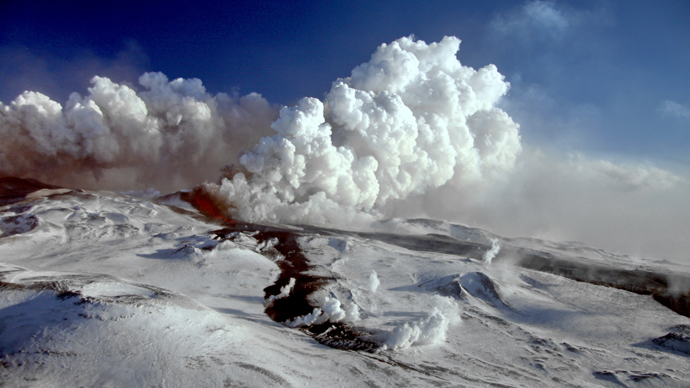Torrents of lava are coming down the magnificent slopes of Plosky Tolbachik, one of the biggest volcanoes in Russia’s Far East region. The volcano "woke up" in November last year - after more than thirty-five years of being dormant.
The 3,085-meter-high Plosky Tolbachik has emitted two streams of
lava one of which has traveled down more than 6 kilometers while
the other one made 18 kilometers. The fiery river has been setting
trees on its way ablaze while turning ice and snow into clouds of
steam.
The nearest settlement is located 60 km away, so there seems to be
no direct threat, according to Kamchtka’s geophysical service of
the Russian Academy of Science.
Plosky Tolbachik (Flat Tolbachik) is the lower volcano in the
Tolbachik volcanic complex on the Kamchatka Peninsula. Its sister,
Ostry Tolbachik (Sharp Tolbachik) rises 3,682 meters above sea
level.
At the same time activity was also detected in the Kizimen and
Shiveluch volcanoes in the Kamchatka region. Since January,
Shiveluch has spewed several eruptions of gases, steam and ash, the
highest of which reached the 4,900 meters. There have also been
frequent earth tremors that sent avalanches down its slopes.
The Kamchatka Peninsula in the Russian Far East is one of the most
various and active volcanic areas in the world. It is located
in the ‘Ring of Fire’, an area where a large number of earthquakes
and volcanic eruptions occur in the basin of the Pacific Ocean,
together with territories of Japan, Alaska, Philippines, Fiji
Islands, New Zealand and many other active regions.


2

